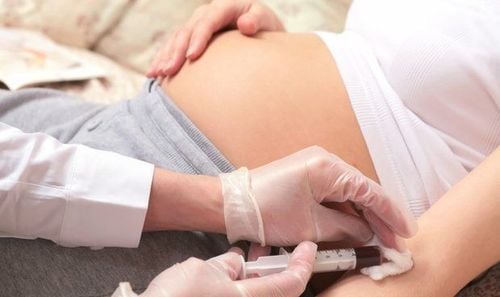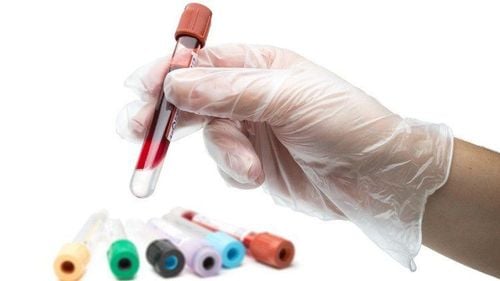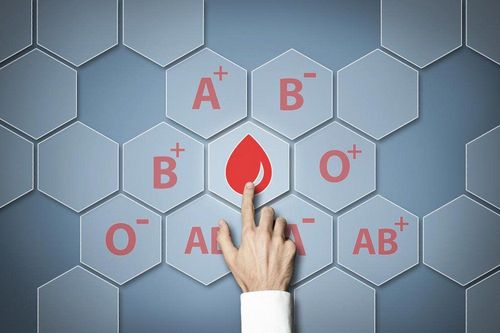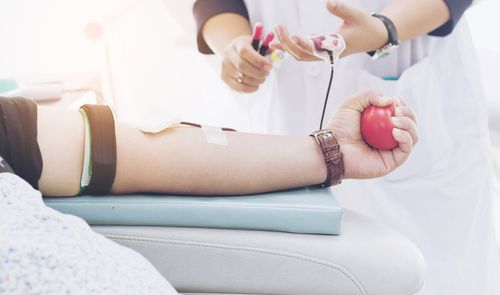This is an automatically translated article.
Donating blood is not only a noble gesture for the community but also brings unexpected health benefits to donors. However, due to various reasons, there are still some people who should not donate blood, including the case of women who donate blood during menstruation. The following article will provide necessary information about those who should and should not donate blood.
1. Subjects can donate blood
A person who is accepted to donate blood must meet the following criteria:
1.1. Legality Age from 18 to 60 years old; Completely voluntary when donating blood; Not being criminally responsible, not being examined for penal liability; When going to donate blood, individuals must present one of the papers with photo stickers such as identity card or citizen identification, passport, driver's license, etc. Blood donation registrants must fill out by themselves. Fill in all information in the administrative declaration sheet and health status, sign for certification. 1.2. Health status The amount of blood allowed to be donated depends on weight and body condition; No chronic or acute diseases as prescribed; Sober, good exposure; Systolic and diastolic blood pressure is not too high or too low; Normal heart rate, average heart rate.

Người được chấp nhận hiến máu phải có huyết áp ổn định, nhịp tim đều
2. Subjects should not donate blood
Those who do not meet one of the above criteria will not be approved to participate in blood donation. In addition, according to the guidance of the Ministry of Health in Circular No. 26/2013/TT-BYT on Guidelines for blood transfusion activities, the following subjects need to delay blood donation including:
2.1. Those who have to delay donating blood for 12 months When fully recovering from surgical interventions; Recovering after contracting blood-borne infectious diseases such as malaria, syphilis,... People who finish a course of rabies vaccination after being bitten by an animal, or injecting or transfused with blood or preparations blood and blood-derived probiotics; After childbirth or termination of pregnancy. 2.2. Those who have to delay donating blood for 6 months After getting tattooed on the skin; After piercing the ears, clicking the nose, pressing the navel or at other locations of the body; When there is exposure to blood and body fluids from a person at risk of or infected with blood-borne diseases; Recovering from one of the diseases of typhoid, sepsis, snakebite, arteritis, thrombophlebitis, osteomyelitis, pancreatitis. 2.3. People who have to delay blood donation for 04 weeks Recover from illness after suffering from one of the following diseases: urinary tract infection, gastroenteritis, infectious dermatitis, bronchitis, pneumonia, measles, whooping cough, mumps , dengue fever, dysentery, rubella, cholera; End of vaccination against rubella, measles, typhoid, cholera, mumps, chickenpox, BCG.
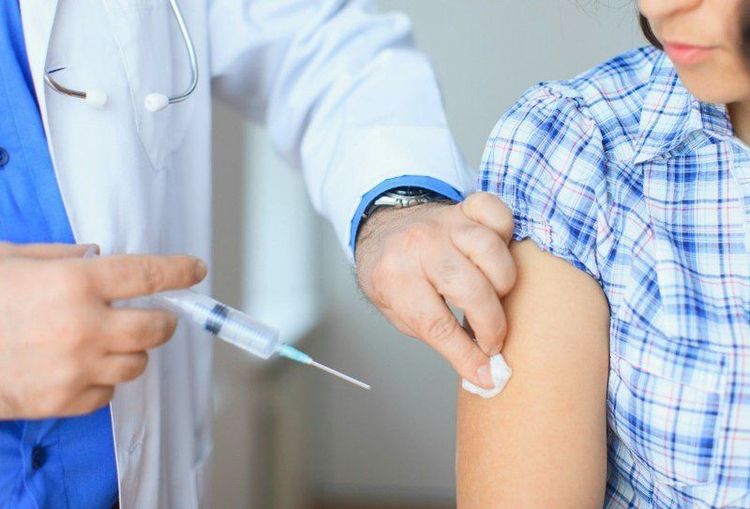
Những người vừa kết thúc đợt tiêm phòng vắc xin phòng rubella, sởi, thương hàn, tả, quai bị, thủy đậu, BCG cần trì hoãn hiến máu trong 04 tuần
2.4. People who have to delay blood donation for 07 days Recover from illness after suffering from one of the following diseases: flu, cold, nasopharyngeal allergy, migraine Migraine, sore throat; Before or after the menstrual cycle for women; Administer vaccines according to regulations 2.5. Certain occupations and specific activities A blood donor who does a number of jobs and performs the following specific activities is only allowed to donate blood on a day off, or only perform these jobs and activities after donate blood for at least 12 hours:
People working at altitude or below: Pilots, overhead workers, crane drivers, mountaineers, miners, sailors, divers; Operators of public transport: Bus drivers, train drivers, boat drivers; Other cases: Professional athletes, athletes and heavy training. Those who do not fit the above-listed cases, the decision to accept or refuse to donate blood depends on the on-site examination of the doctors.
In summary, although blood is very rare, blood transfusion needs to follow certain principles. It is these principles that both help improve the quality of donated blood and contribute to the treatment of patients; at the same time, also keep the health and legal safety for the blood transfusion.
Please dial HOTLINE for more information or register for an appointment HERE. Download MyVinmec app to make appointments faster and to manage your bookings easily.
Reference source: Ministry of Health; Hanoi Center for Disease Control




